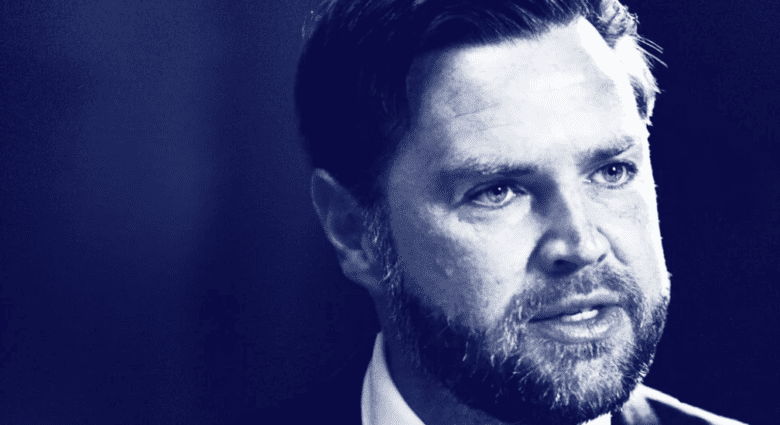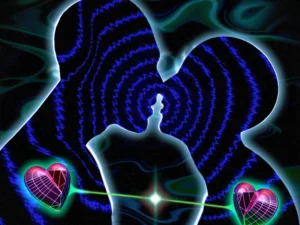Why Vice President JD Vance Calls Dating Apps ‘Destructive’: The Reason Americans Should Probably Pay Attention
In a recent interview with The New York Times, Vice President JD Vance made headlines for stating something few politicians have dared to say: “Dating apps are probably more destructive than we fully appreciate.” This bold claim didn’t just dominate the news cycle—it ignited a viral conversation among young people and political analysts alike.
Vance said he was less worried about AI taking jobs and more concerned about how modern tech affects basic dating behavior among young Americans. He emphasized that young men and young women are increasingly disconnected in a world driven by swipes and likes. According to JD Vance, this isn’t just a cultural shift—it’s a societal threat.
1. Dating Apps Promote Shallow Connections, Not Deep Relationships
JD Vance calls dating apps a destructive force not just because of what they offer, but what they replace: human beings forming real emotional bonds. In apps like Tinder, Bumble, and Hinge, success is often based on appearance and fast interaction, not shared values or goals.
Online dating has become a virtual casino of endless options, often leading to problem behaviors like ghosting, choice paralysis, and casual flings over commitment. Vance said this isn’t just a tech issue—it reflects a deeper concern about how young women to communicate and how men and women just aren’t building meaningful connections anymore.
2. AI Is Creating a New Kind of Intimacy—And It’s ‘Profoundly Dark’
One of the most compelling points Vice President JD Vance raised was that part of it is technology, but not just dating apps. The real threat, he claims, is how AI is reshaping intimacy itself. From emotionally intelligent chatbots to algorithmically tailored matches, Vance also warned of a future where teenagers talking to chatbots may feel more satisfying than talking to actual people.
This, Vance said, could be “profoundly dark.” He fears we’re entering a world where the dopamine rush of talking to an AI bot becomes more desirable than dealing with the unpredictability and vulnerability of real interaction. If that happens, marriage, family, and traditional relationship structures could collapse under the weight of simulated comfort.
3. Young Men and Women Just Aren’t Dating Anymore
Another striking takeaway from the New York Times interview was Vance’s observation that young men and young women simply aren’t dating. “They’re not dating. They’re not getting married. They’re not starting families,” Vance said. This isn’t just an anecdotal observation—it’s backed by data showing declining rates of marriage and long-term relationship formation among young people.
The reason, according to Vance, is that the modern tech landscape has made it harder for young people to engage in meaningful communication. He suggests that platforms like Instagram and Tinder aren’t helping—they’re making it harder for young men to confidently interact and young women to communicate their needs without digital filters.
4. JD Vance and His Wife Are a Case Study in Traditional Connection
In contrast to today’s fast-paced online dating culture, JD Vance met his wife, Usha, at Yale Law School. Their story is one of in-person connection, mutual growth, and shared values—qualities often lost in the algorithmic world of match percentages and profile swipes.
Vice President J.D. uses his own life as an example of how relationships can thrive without digital intermediaries. He emphasizes that building a connection with a potential husband or partner should involve shared experiences, not just Instagram messages or emojis. In a world where sex is often transactional and fleeting, Vance argues for a return to intentional romance.
5. Americans Need to Rethink Their Relationship with Tech
While JD Vance has faced criticism for his views, his core argument is one many Americans relate to: that tech has infiltrated every aspect of our lives, including how we meet, love, and commit. From online arguments to swipe fatigue, dating has become another piece of tech news, rather than a personal journey.
Vance said this shift has cultural consequences. There’s a reason that dating apps feel more like gamified platforms than romance incubators. As people become more comfortable with instant gratification, they lose the patience and courage needed to build a deep connection. And as these apps grow more embedded in our daily routines, open and honest communication suffers.
6. Social Media Is Eroding the Foundations of Real Love
A less discussed but equally powerful aspect of Vance’s critique is the role Instagram and other social platforms play in creating unrealistic standards for dating. The pressure to curate perfect images and broadcast curated versions of our lives has left many feeling inadequate and isolated.
In his recent interview, Vance also pointed to the societal shift from authentic interaction to performative relationships. Teenager self-esteem issues, comparison culture, and the sexualization of youth all tie back to how we now present love and sex in public digital arenas.
7. The Real Threat Is Disconnection—And It’s Time to Take Action
Ultimately, JD Vance believes the biggest danger is disconnection. Not just emotional, but spiritual and cultural. When young men and women lose the ability to connect, society suffers. This goes beyond just personal sadness—it affects everything from birth rates to mental health, from community engagement to national identity.
To fix the problem, experts suggest a return to fundamentals:
- Encourage in-person events, community building, and real-life interaction
- Develop emotional intelligence and empathy in schools
- Use dating apps as a starting point, not the destination
- Teach young people to value commitment and depth over likes and instant gratification
Conclusion: Why JD Vance’s Comments on Dating Apps Matter Now More Than Ever
Whether you agree with JD Vance or not, his views force us to think a lot about how we form relationships in today’s digital-first world. By spotlighting the emotional, psychological, and societal costs of dating apps, Vice President JD Vance challenges us to look beyond convenience and ask ourselves: Are we truly connecting?
It may be tempting to dismiss his comments as outdated or alarmist. But in a time when real interaction is increasingly rare, his words might offer the clarity we didn’t know we needed.



